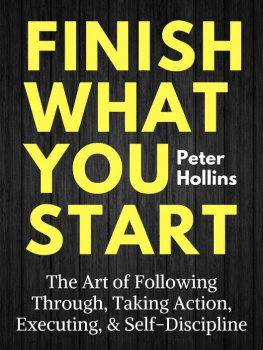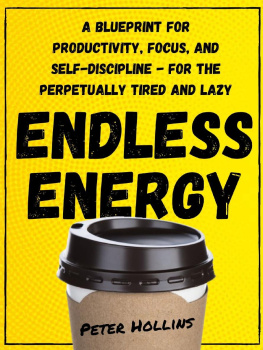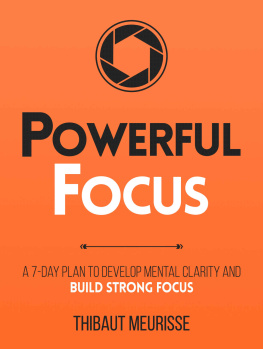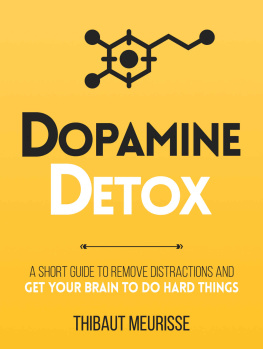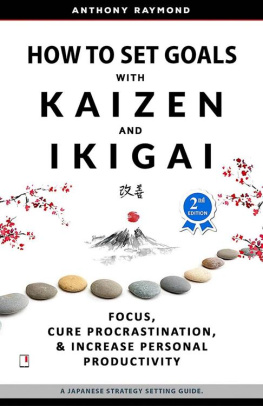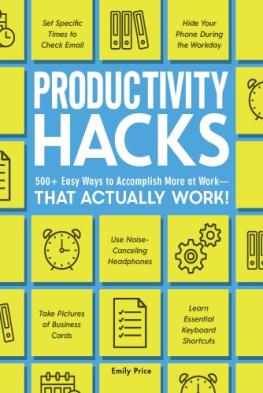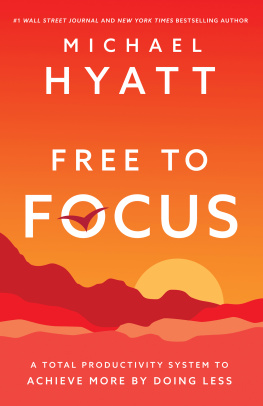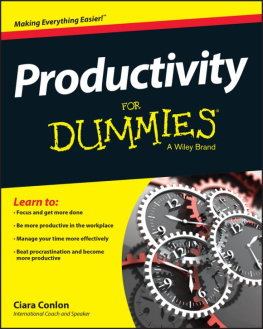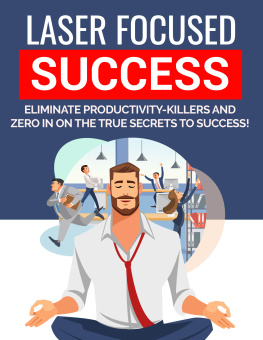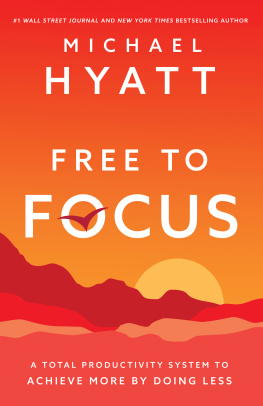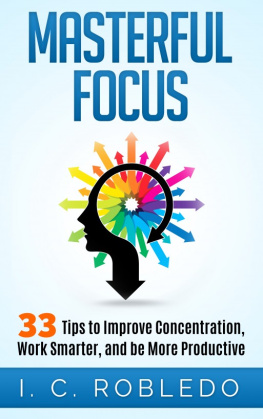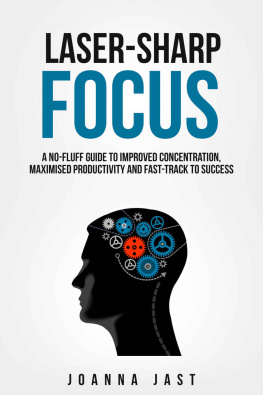The Science of Powerful Focus:
23 Methods for More Productivity, More Discipline, Less Procrastination, and Less Stress
By Peter Hollins,
Author and Researcher at petehollins.com
< < CLICK HERE for your FREE 14-PAGE MINIBOOK: Human Nature Decoded: 9 Surprising Psychology Studies That Will Change the Way You Think. > >
--Subconscious Triggers
-- Emotional Intelligence
-- Influencing and Analyzing People
Table of Contents
The Science of Powerful Focus: 23 Methods for More Productivity, More Discipline, Less Procrastination, and Less Stress
Table of Contents
Introduction
When I was in university, I eventually gained quite a reputation. Unfortunately, it wasnt the type of reputation I could impress the opposite sex with, or even be proud of.
My reputation was that of the person who procrastinated until the last moment before assignments were due and got them done at any cost. And this is in a literal sense: I would hand in assignments at 8:59 p.m. if they were due at 9:00 p.m. on a given day. I wouldnt sleep for the 48 hours prior to the deadline and managed to pull off ridiculous feats of focus time after time .
Only once did I fail to meet the deadline. It was a paper about the spread of Confucianism in Asia, and for whatever reason, I simply could not muster the willpower to dive into Chinese proverbs that all required philosophical analysis. To solve the problem, I had a friend corrupt my Word document and I sent the file, which would never work for my professor. This bought me another night of frantic work, and I didnt sleep a wink.
By my senior year, this was a habit I had largely grown out of. It simply wasnt a sustainable way of getting through college, especially as assignments grew longer and harder and were held to higher standards.
I had to find better ways to actually focus, and it dawned on me that I had never really learned study skills. Instead, I had depended on my all-nighters. I felt intense feelings of dread as I was assigned a 50-page term paper on the philosophical teachings of Karl Marx. This wasnt something I could hammer out in under a week .
The same friend who intentionally sabotaged the Word document for me introduced me to the concept of the Pomodoro Technique. In essence, you focus intensely for 25 minutes and then take five minutes off. Then you repeat this process, ideally, eight times. At the end, its typical that putting periodic breaks into your working schedule will exponentially increase your output, and thats exactly what happened to me.
I was able to finish the term paper on Karl Marx well ahead of schedule and discovered what it felt like to turn tasks in ahead of time and actually sleep before they were due. This simple technique started me on the path to discovering what about human focus makes us want to procrastinate so much, and what we can do about it.
I was focused on focus and dug into the science of achievement, evolutionary biology, behavioral economics, and anything else you can think of. Focus is a product of our willpower and other subconscious drives, so you can imagine that just about every desire we have plays a role in it.
At least, thats the best way to approach it. You see, its not always possible to just pull an all-nighter like I was known for in college. Real life doesnt give you that opportunity or liberty, so learning to focus is really learning the biggest ability of allto achieve what you set your mind to. Getting more done in less time. Being able to achieve your goals.
When we think about what we want out of life, its only made possible through focus and perhaps a small amount of luck. Focus is the end game for much of self-improvement, even though we might think of it in other names.
Ive implemented every single one of the scientifically proven methods in this book myself to great results. Not every one stuck, but they all impacted me in some way. Best of all, you dont have to believe mebelieve the research scientists who ran the research studies !
At work these days, people would never guess that I had a reputation for cutting it extremely close to deadlines. I find that with just a few of the focus techniques in this book, I can consistently work ahead of schedule. Of course, dont let them know that, because then I might get assigned more to do!
Best,
Peter
Chapter 1. Discipline and Willpower
When you think of the word discipline , what image comes to mind? Chances are good that you thought of something negativebeing spanked or sent to your room as a child or receiving a warning for some infraction at work. Most people tend to think of discipline as a punishment, but in actuality, the definition refers to training that corrects, molds, or perfects mental capacity or moral character. True, many parents achieve this outcome by using various forms of punishment, so the negative association is well founded .
However, discipline is also a trait celebrated and revered in many circles, especially athletics. Any pro athlete will tell you that it takes discipline to make it in the majors. Michael Jordan, acknowledged as possibly the greatest basketball player of all time, once remarked that he wasnt out there sweating on the court three hours a day just to find out what it feels like to sweat. He understood the need to train his mind and his body to perform to the best of his ability, even on days when he would have preferred to stay in bed.
Willpower is a companion to discipline. It is the mindset of energetic determination that allows discipline to manifest. Many people view willpower as a mechanism of failure, because it is closely associated with avoiding temptation. At the end of a long work day, its a lot easier to sit down and watch TV than to go for a run, but for those with a desire to optimize their health, the combination of discipline and willpower win out. More often than not, they find themselves lacing up their sneakers and heading out the door .
These two traits are what we aspire to because we tend to feel that we arent doing as much as we can. In the face of hardship, simply not acting is the easiest path of all. But deep down, we realize that we simply arent going to get what we want in life if we cant muster the will to do what we dont love from time to time. Indeed, on some level it comes to the costs (anything worth working hard for) being compared to the benefits (the hard work itself). Clearly these have cache when attempting to focus better on a task at hand.
Pushing the Boulder
Sometimes theres no way of avoiding a task, and you just have to grind through it. You hate it, it makes you miserable, and theres simply no spinning it into something positive. This is the reality-changing power of discipline and willpower, because it allows you to toil in the darkness despite any type of emotional objection. Tasks with no glory or redeeming qualities are inevitable; ditches must be dug by somebody, and sometimes you cant avoid it .
If you experience a lack of motivation or focus, discipline and willpower are effective substitutes for pushing past the misery. Like Sisyphus in the ancient Greek myth, cursed forever to roll a boulder uphill, sometimes a task feels endless. Many people, especially those in creative fields, believe that they must rely on motivation, inspiration, or their muse in order to create. That notion is dead wrong and generates a false narrative that leads people to sit around waiting for something that rarely, if ever, appears. During those periods when the muse is silent, when there is no flash of creative genius, true artists rely on discipline to move past the block and keep the work flowing.


